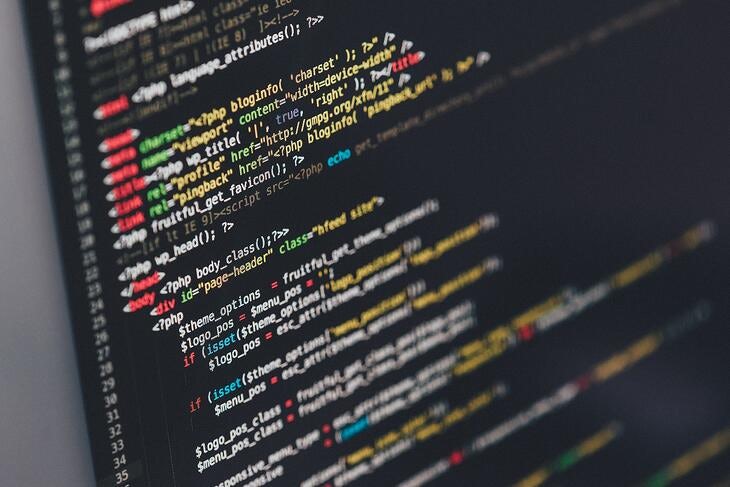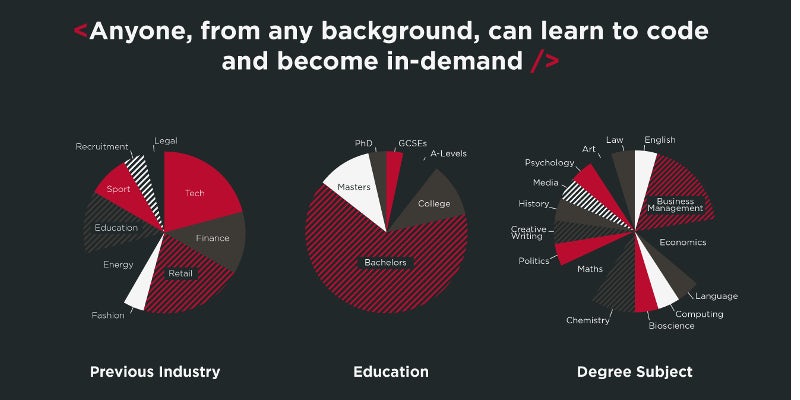Code
Can anyone really learn to code?


It's impossible to miss the headlines about the digital revolution, whether it's alarmist articles about robots replacing everyone’s jobs or statistics regarding the digital skills shortage across the UK, including Manchester, and what this means for the rapidly expanding tech industry.
Online code schools and their associated social media are peppered with happy testimonials of those who, without a computer science degree or a tech background, have studied hard and started new careers in software development.
Even me?
As a stay-at-home parent I admired, even envied, their success, but often felt I couldn't relate to many of the testimonials, especially those who confessed they'd 'always coded'. I hadn't 'coded' since I'd fiddled with the CSS on my teenage Livejournal, and I wouldn't admit to anyone that the reason I didn't have a smartphone was because I didn't understand touchscreens. I was interested in these inspirational stories, but really - "Anyone can code"? Even me?
After nine years out of the workforce, I doubted I'd even be employable, let alone have a career. The occasional hurtful comment regarding my decision to not return to work, especially for so long, had considerably knocked my confidence and I wasn't sure what kinds of attitudes I would face.

When I last left the office, mobile phones still had buttons and The X Factor was still popular.
But attitudes have changed. I was inspired by news of forward-thinking companies who, having recognized the lost potential of talented parents, carers and others who had taken long career breaks, pioneered 'returnship' mentoring schemes to encourage professionals back into to work. The tech industry is eager to increase diversity and break down barriers such as age, background and even experience. A degree is no longer an entry-level must-have for those with the skill and a passion.
How I took the next step
Online and free, Codecademy's taster courses and Free Code Camp's lengthy curriculum are an excellent starting point with guided exercises and simple terminology. Some critics dismiss the simplicity, but for many people, this gentle introduction is exactly what they need. I practiced making simple websites and games on Codepen - with touchscreen functionality! - and solving challenges on Codewars. Soon, coding alone at home was not enough. I was not just eager to improve my skills - I was also keen to talk to developers and other enthusiasts and find out more about working in tech.

Manchester has a friendly and welcoming tech community, eager to encourage newcomers and quash any sense of Imposter Syndrome. To be a developer is to be constantly learning, so those, further along, are only too happy to share their knowledge and help others up behind them. I attended workshops at Madlab, who host a variety of events and meetups where experienced coders can mentor and support beginners, and the Northcoders four-evening introduction to programmingcourse, an opportunity to learn the basics and put them straight into practice.
These sessions also provide an excellent opportunity to see if you actually enjoy the coding process - the logical and creative approaches to problem-solving, the feeling of success when your solution works and how to begin investigating when they don't.
When you see the "anyone can code" message and wonder "what, even me?", workshops like this are extremely valuable. Yes, even you. If you give it a try and find you enjoy it, there's a support network already in place ready to show you the way.
Click here to find out more about our Coding Bootcamps.
Sally Hale


